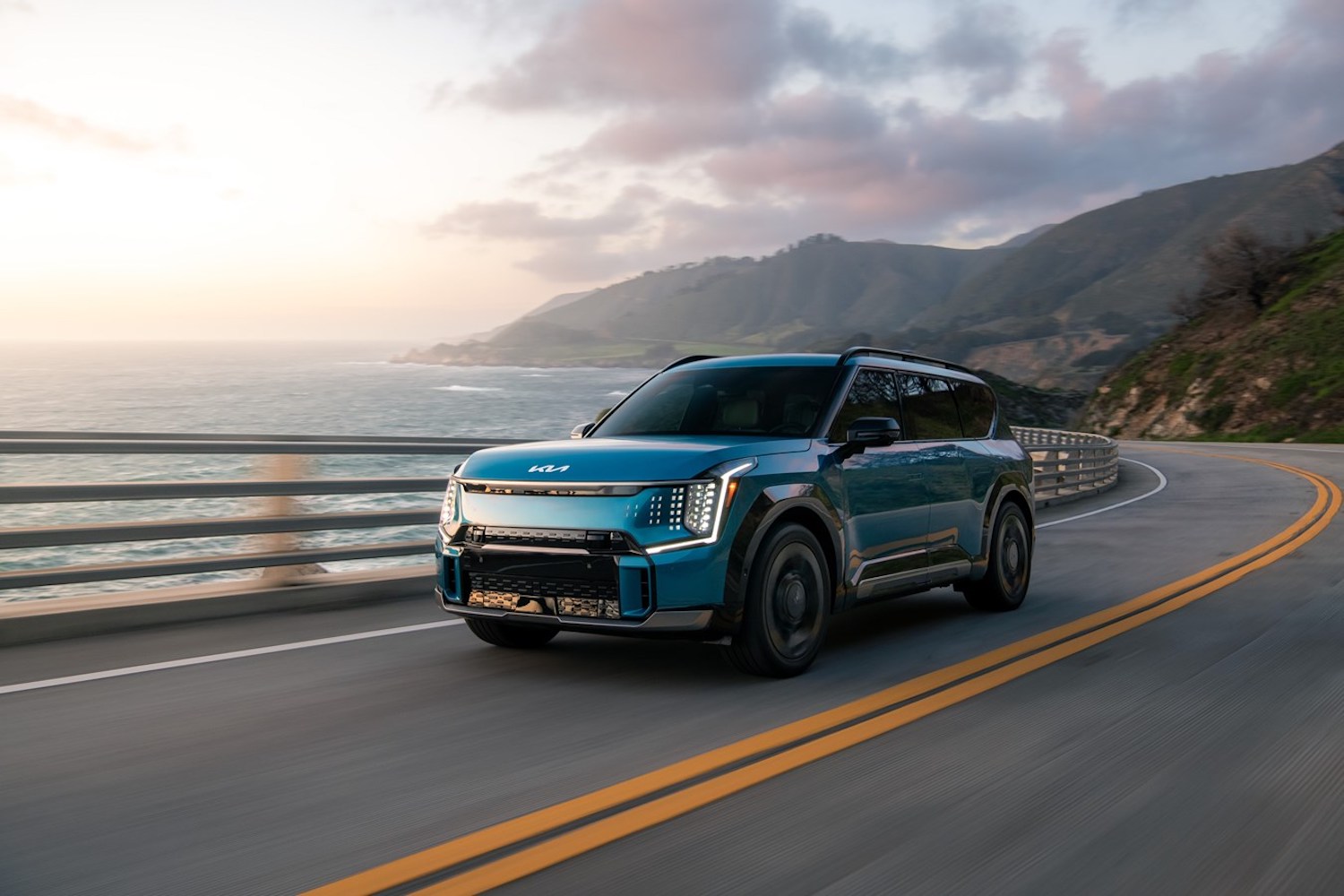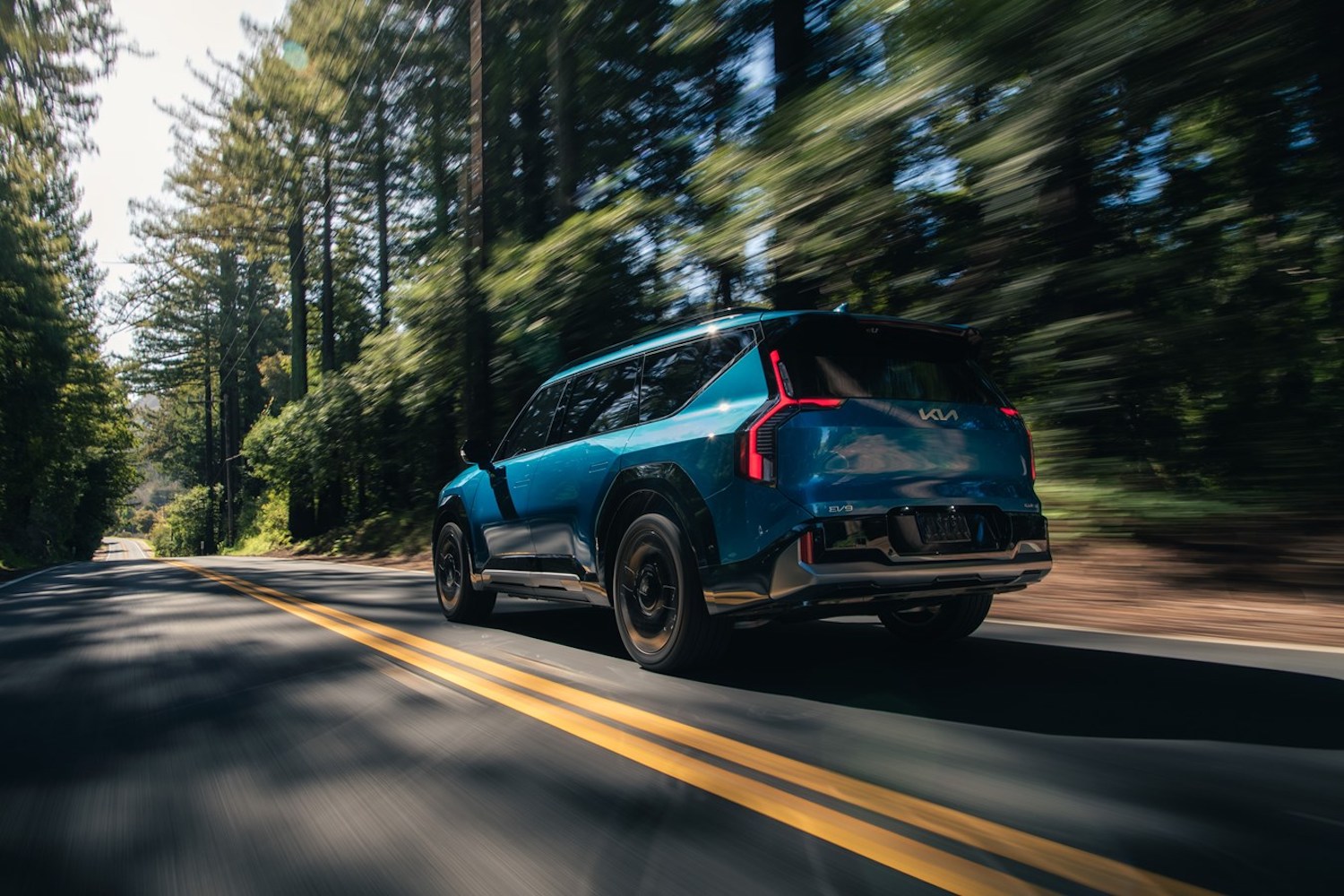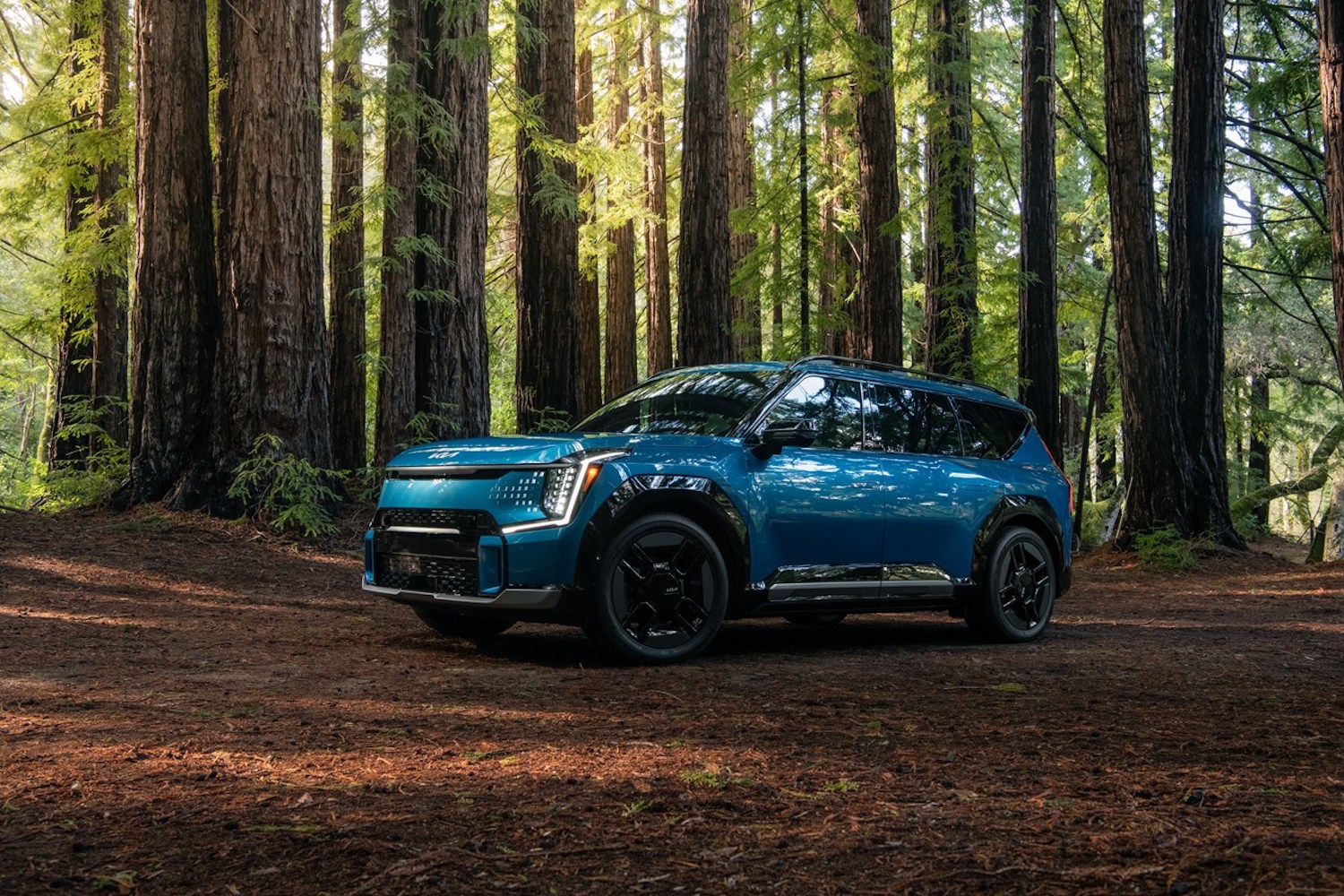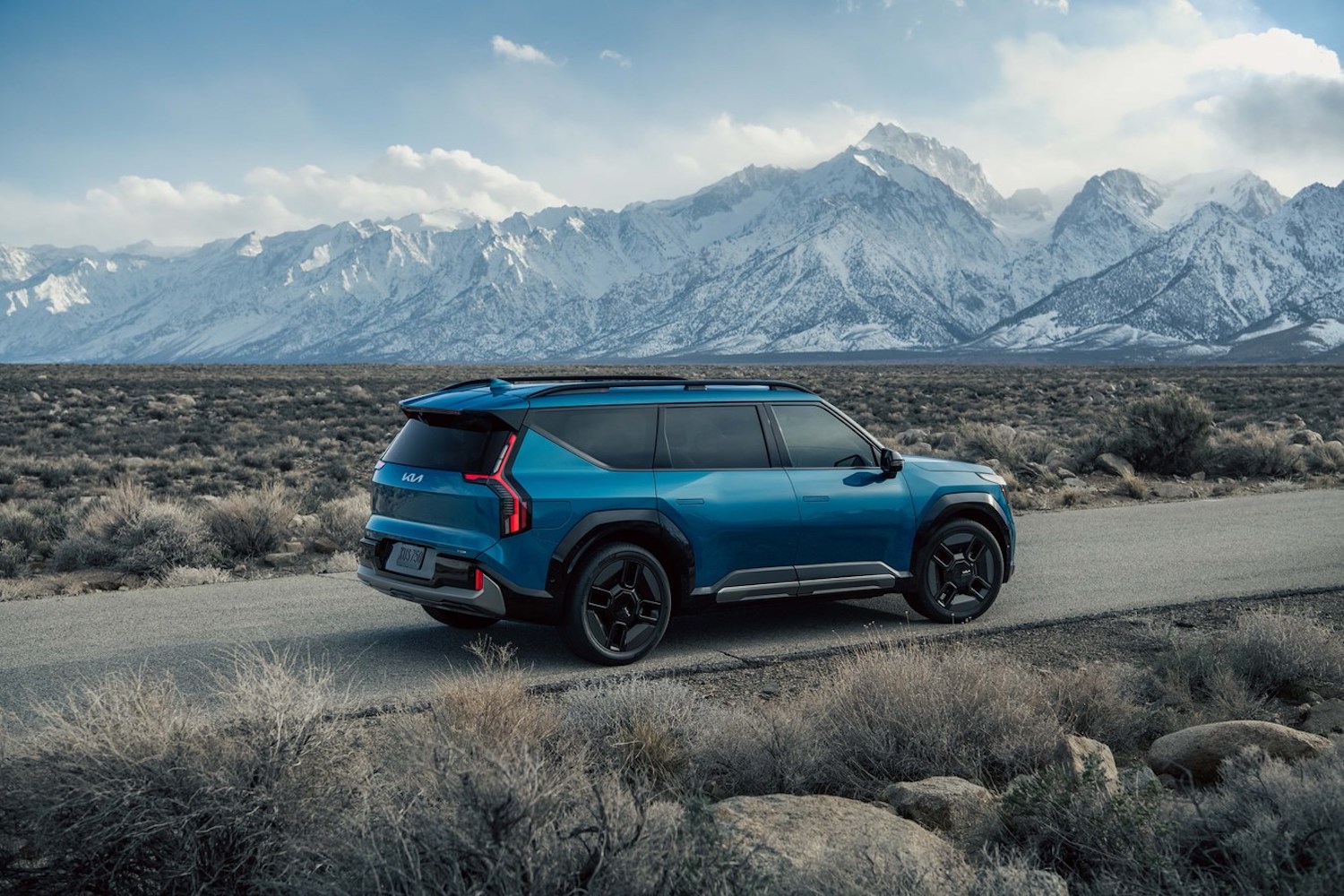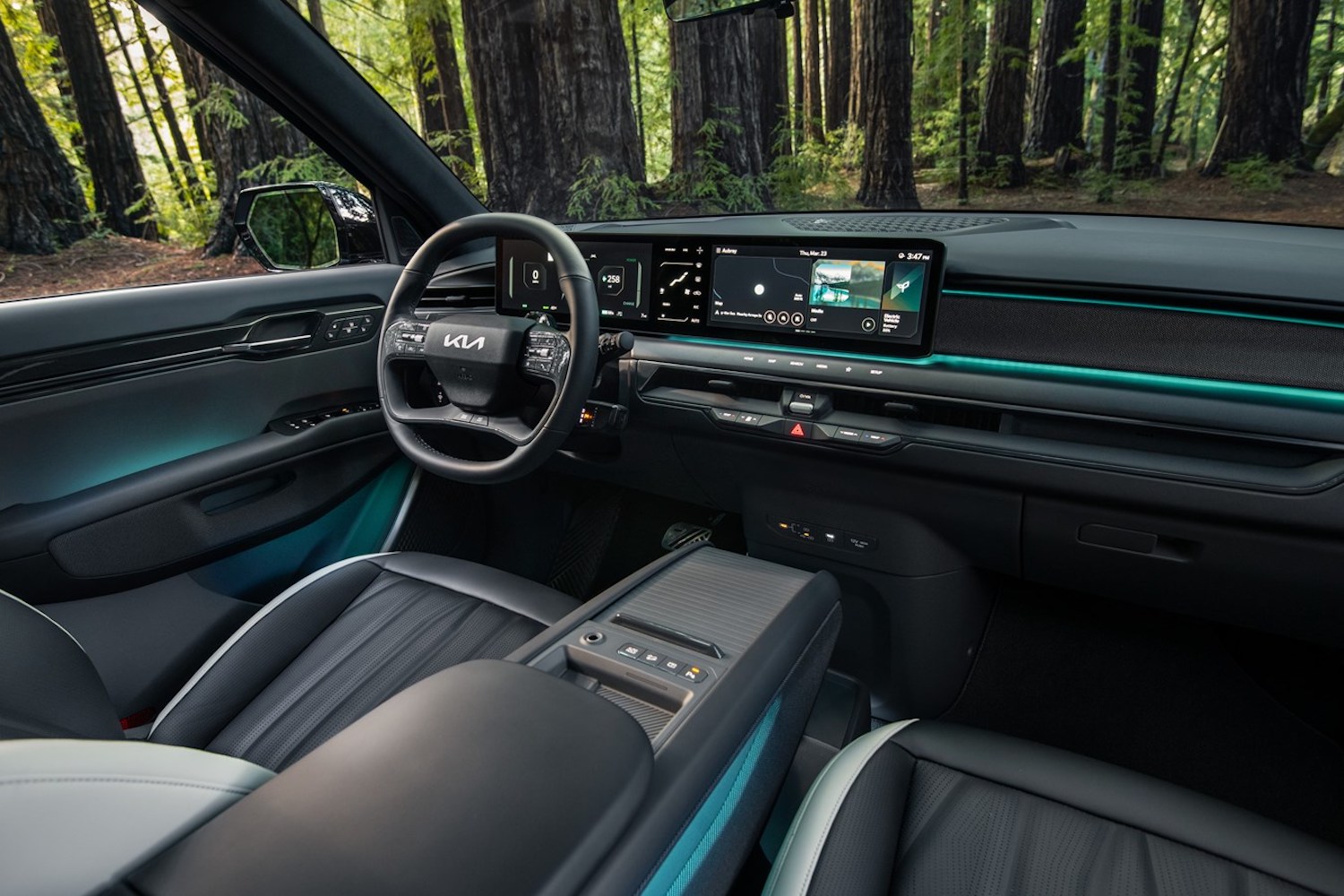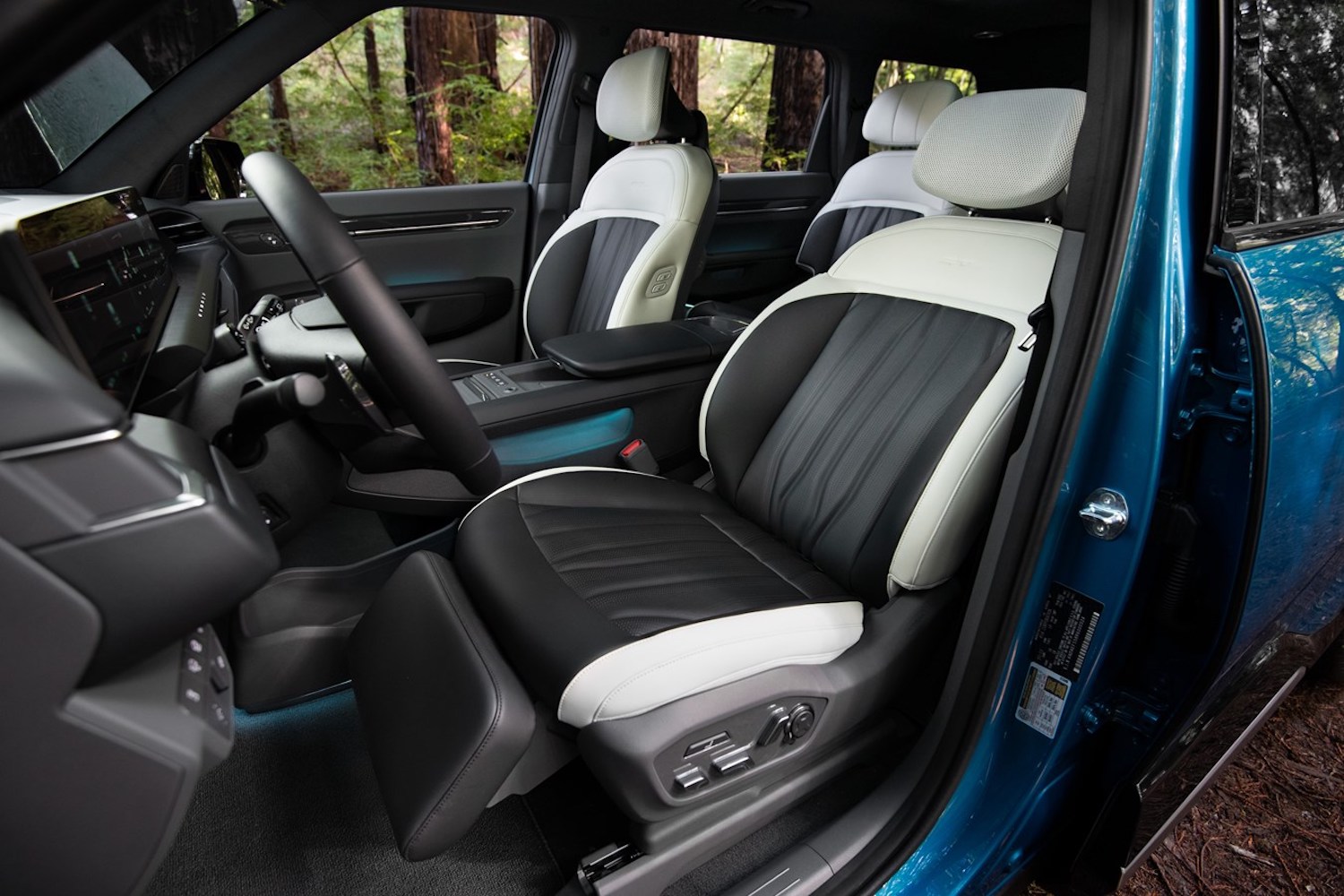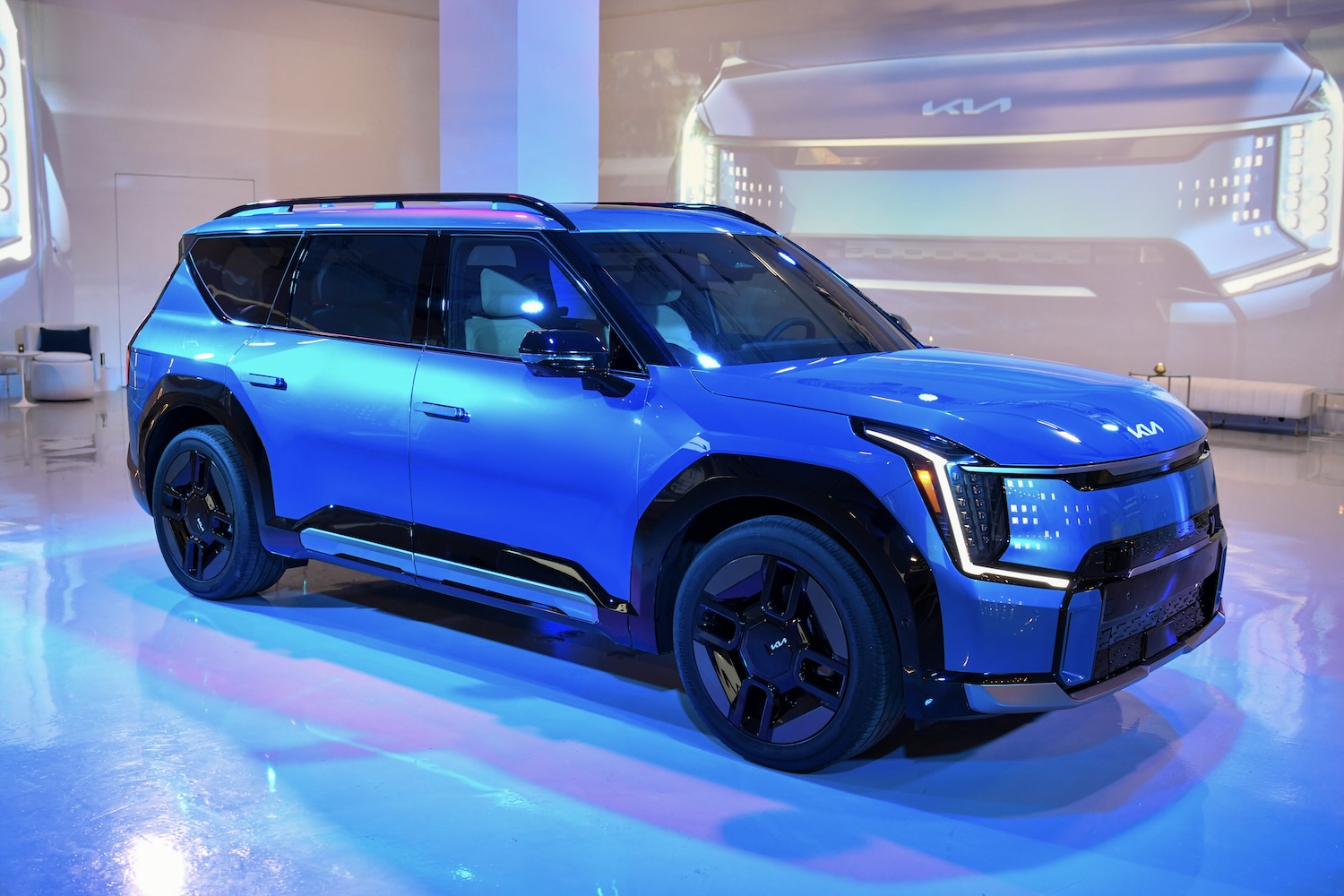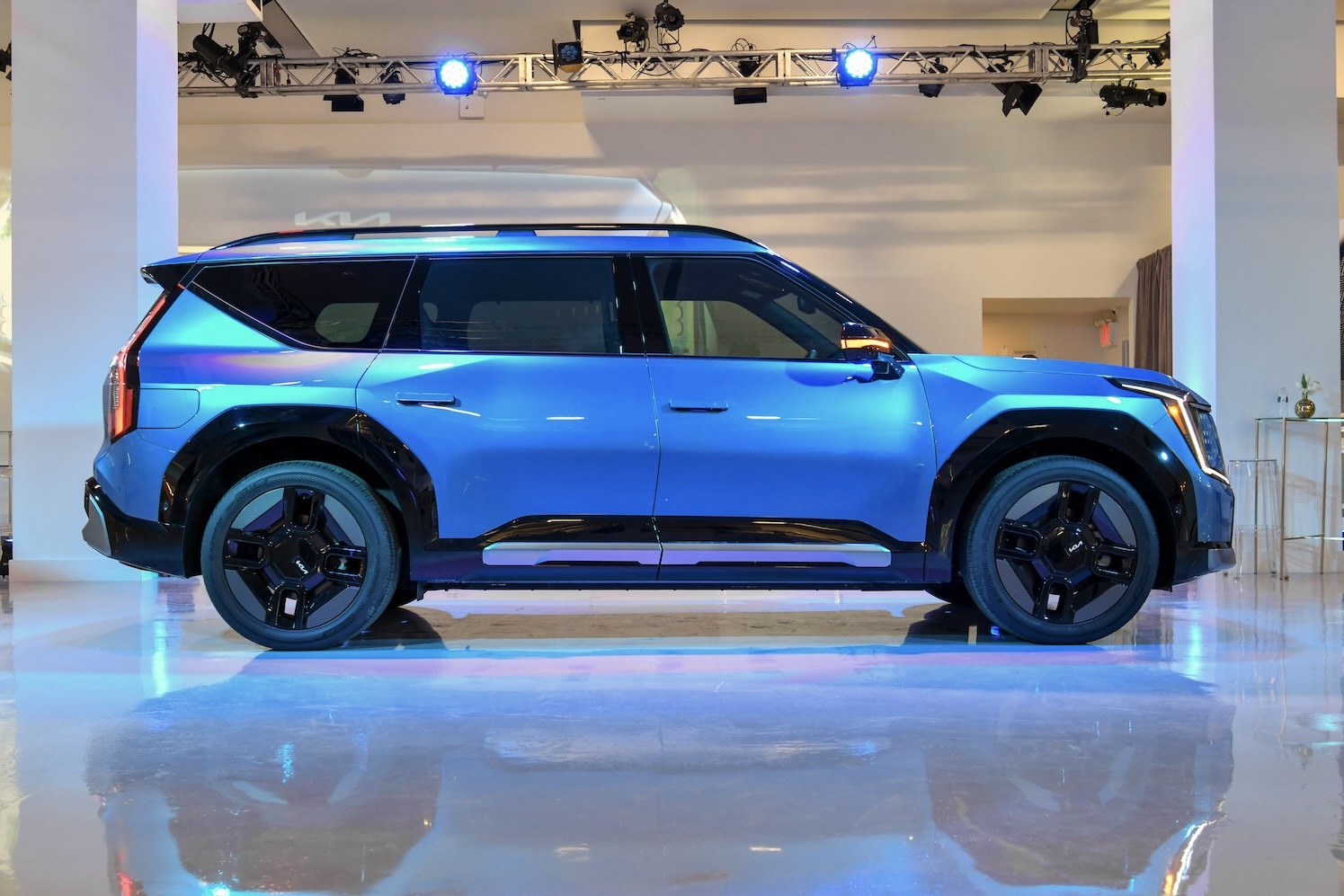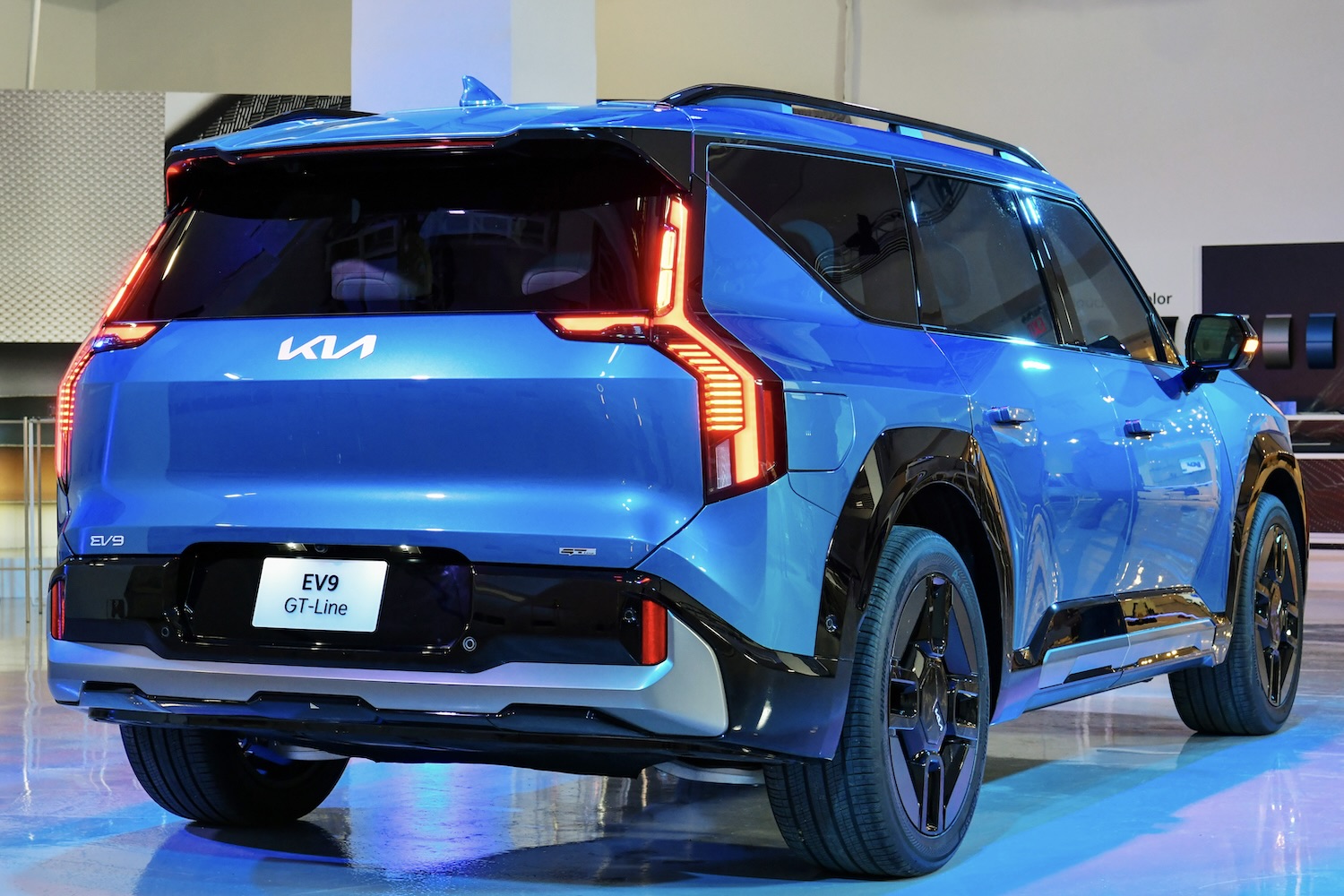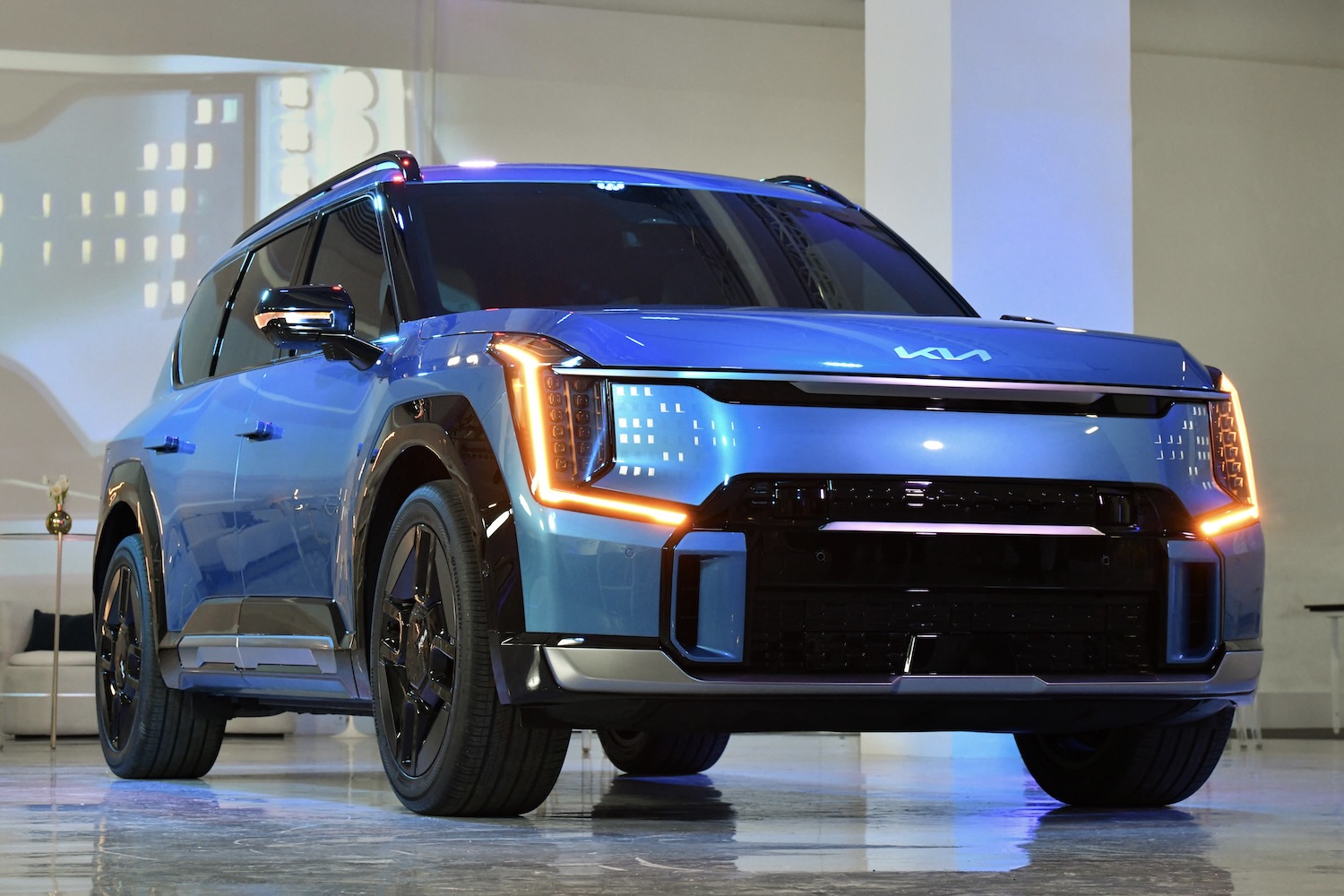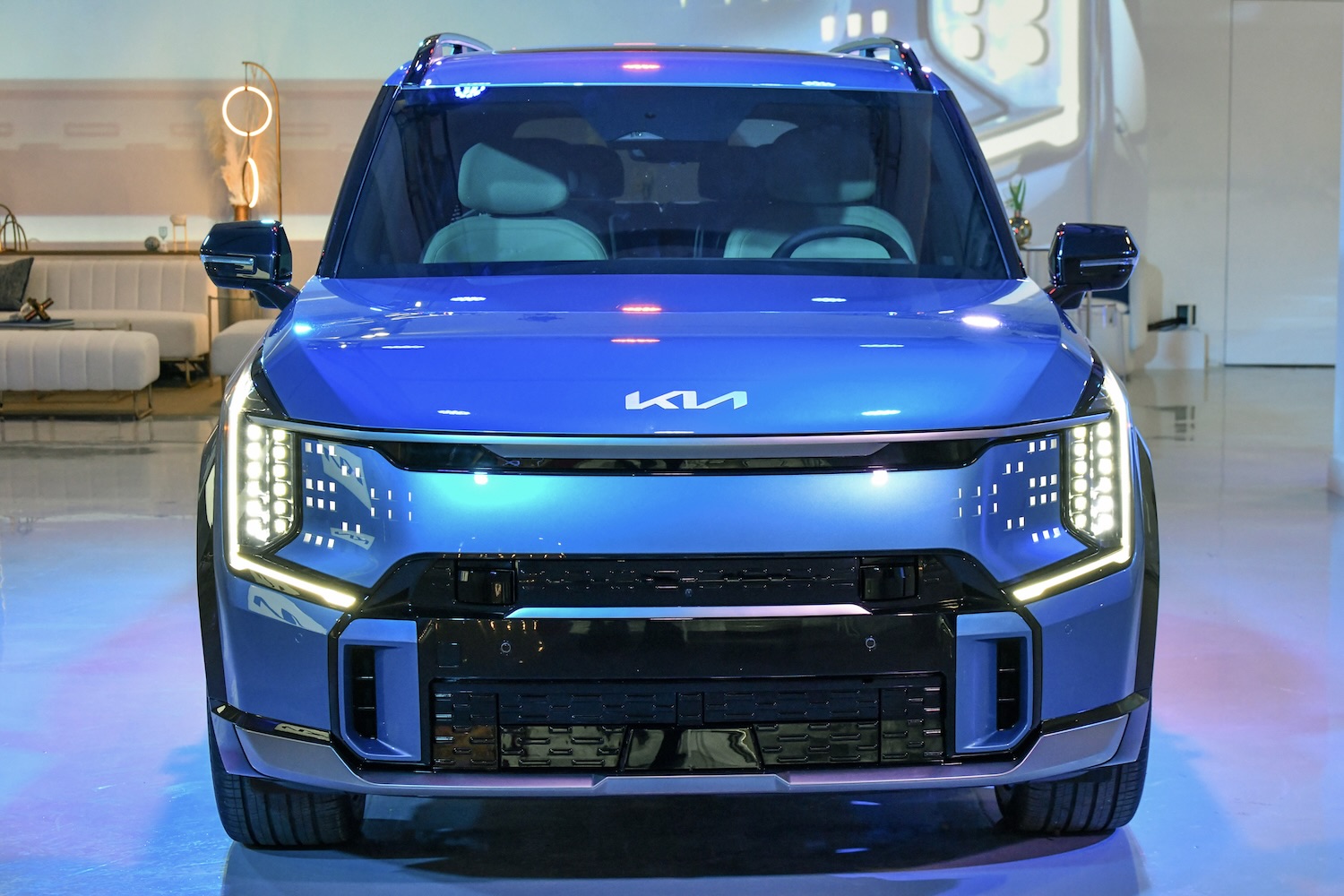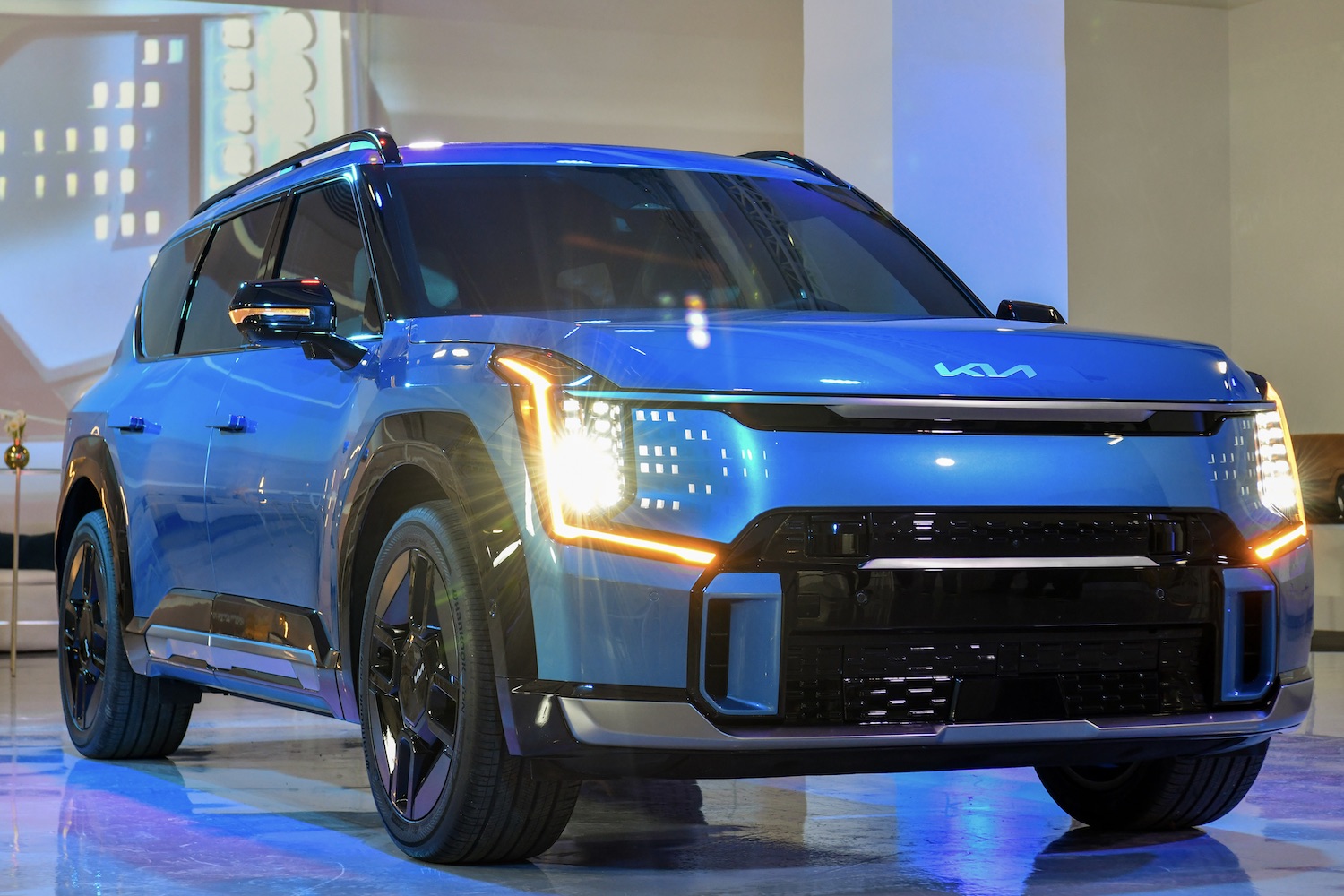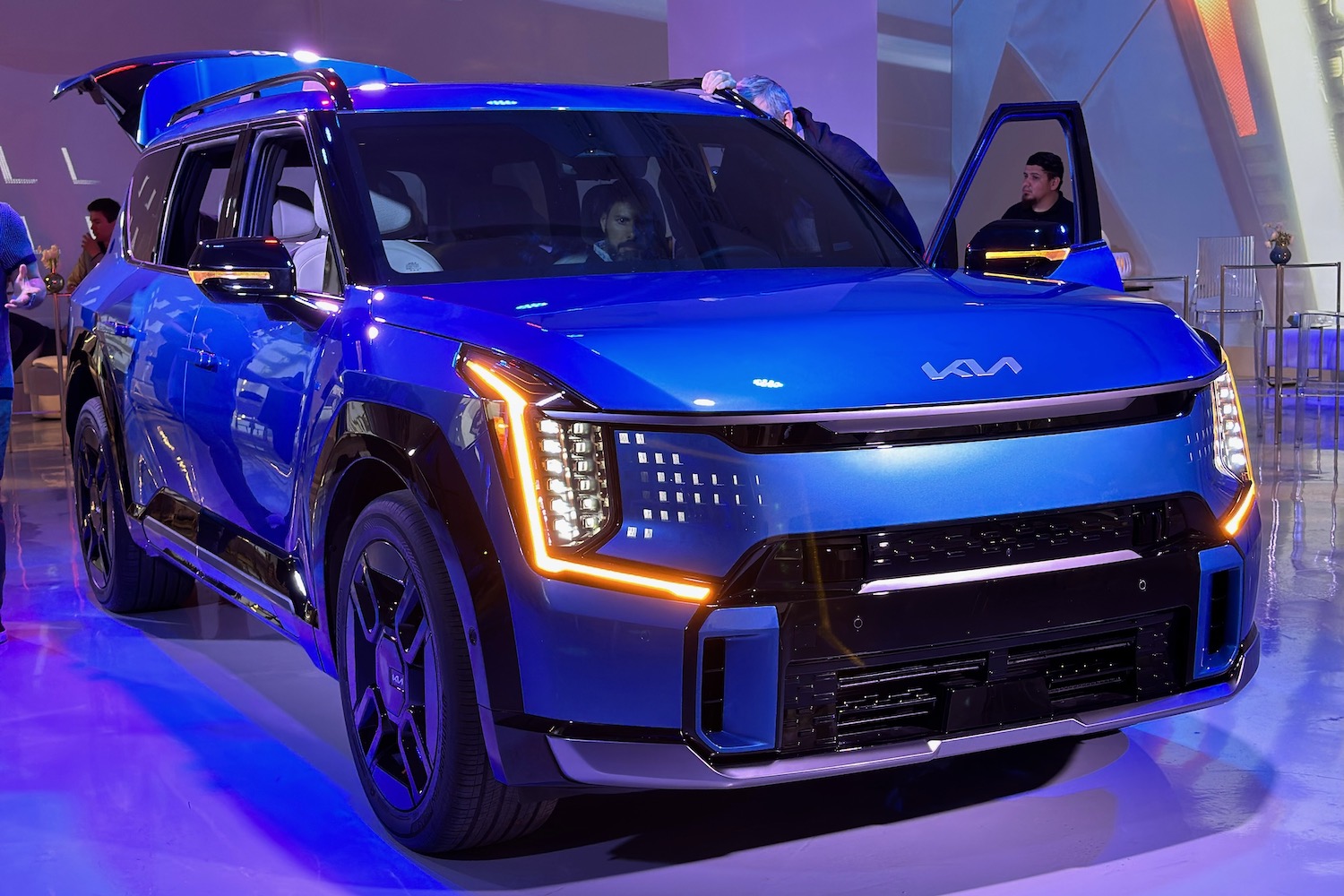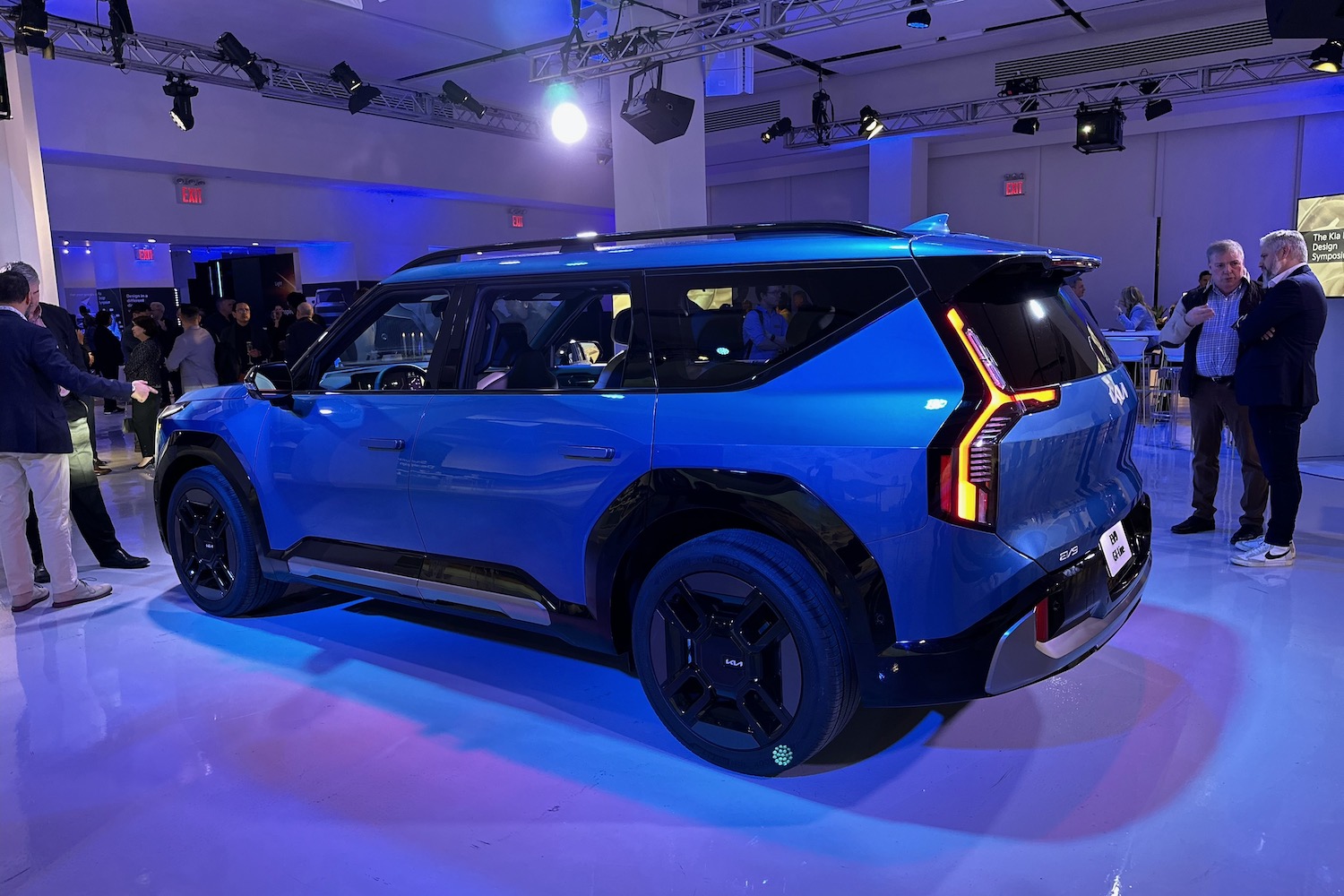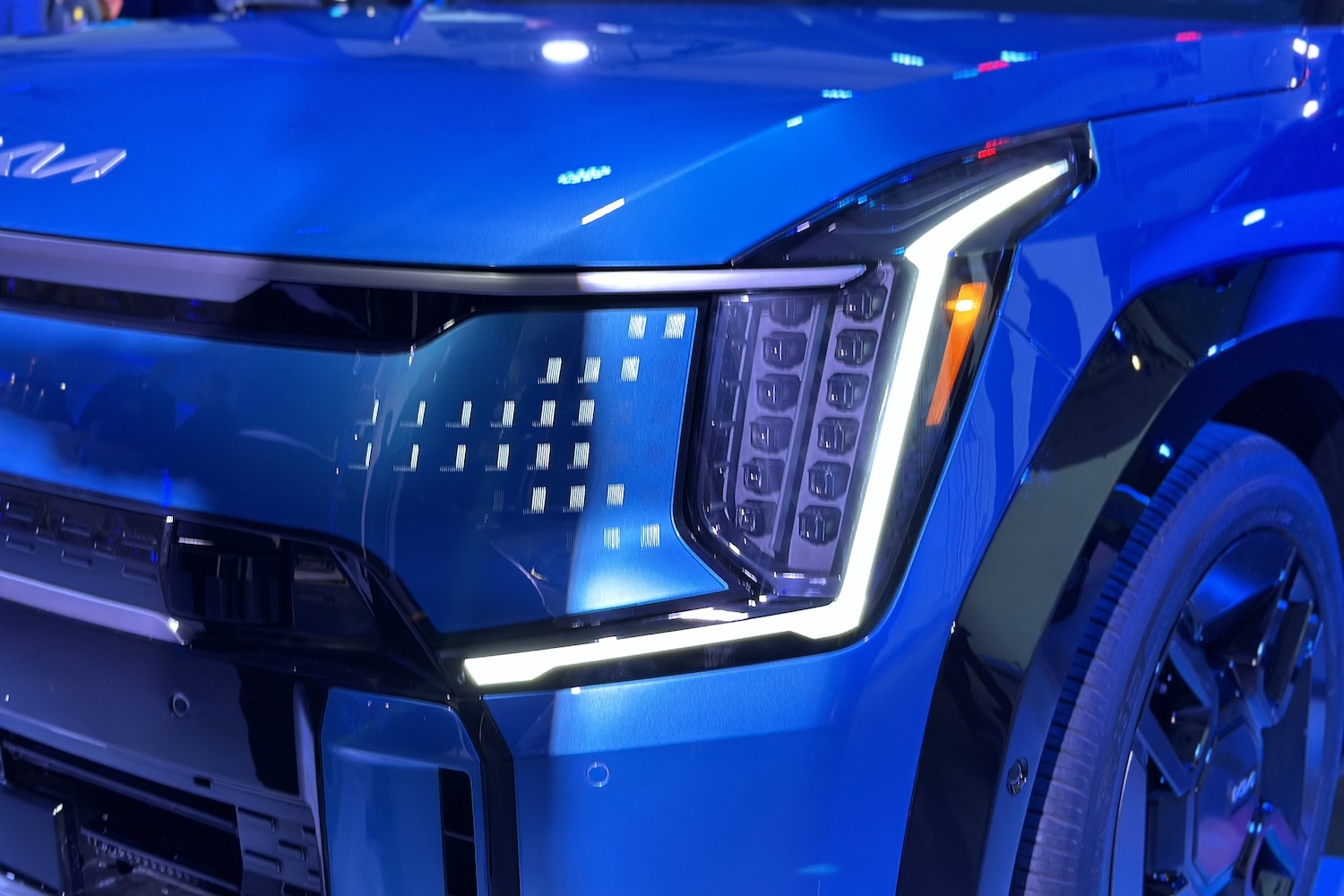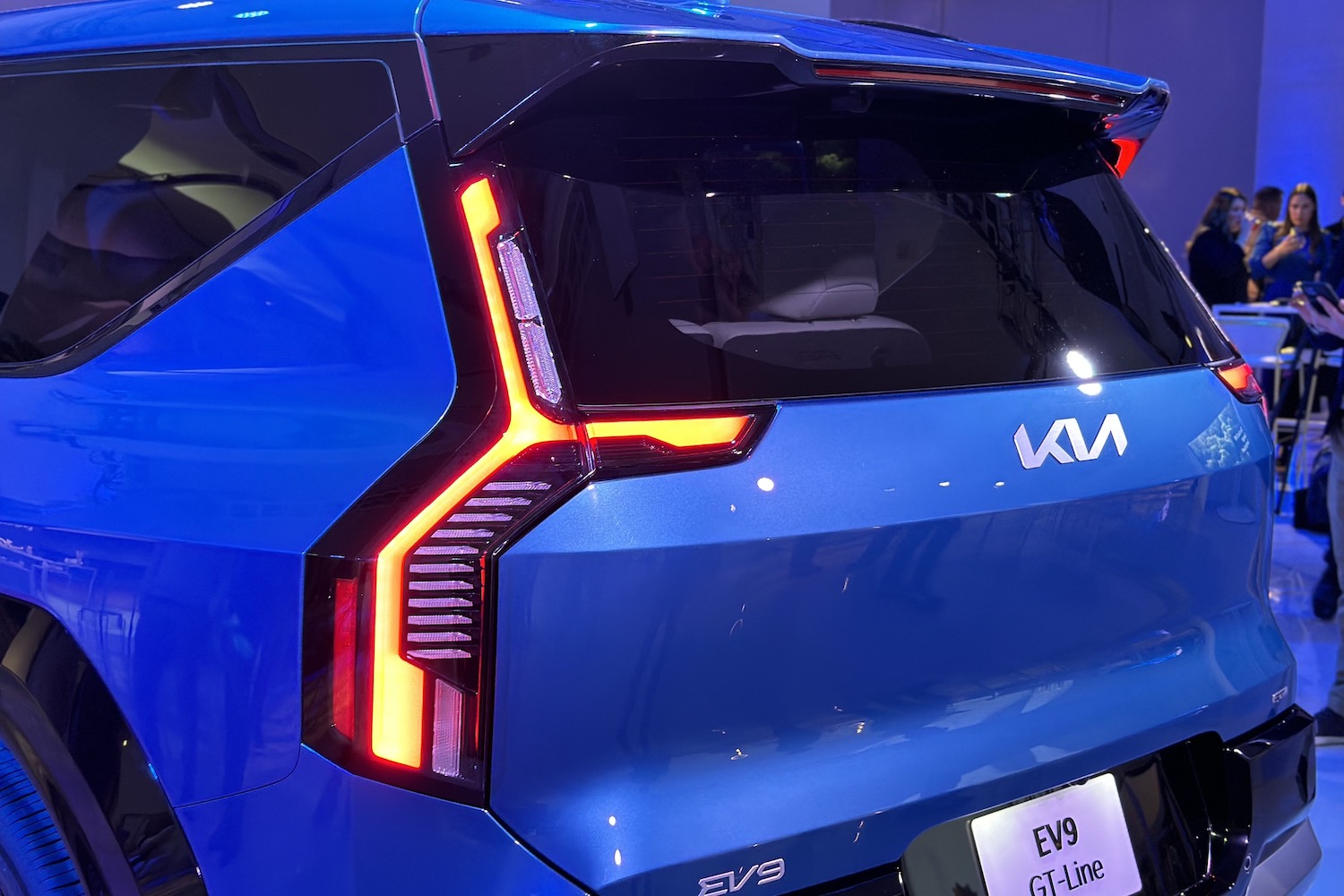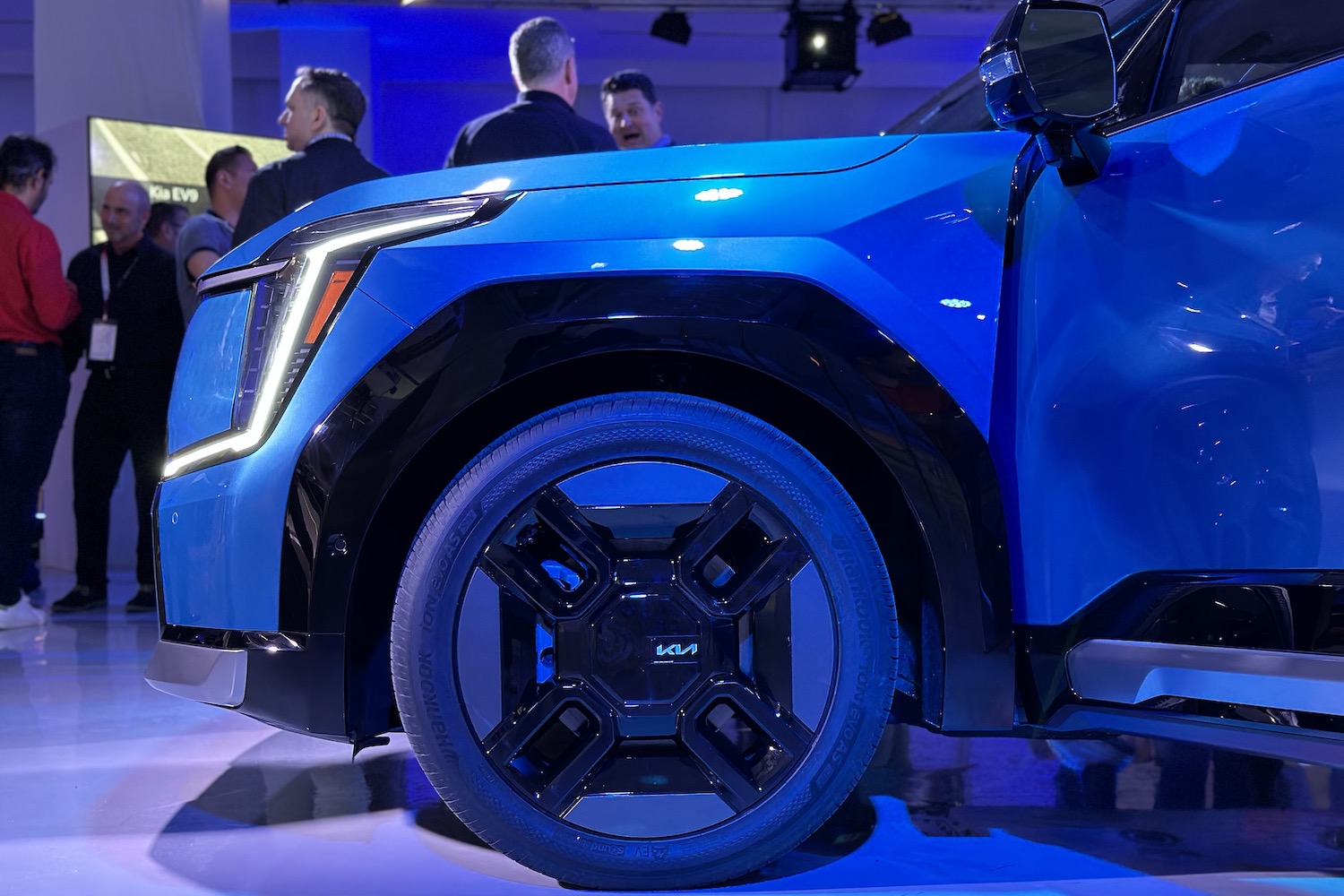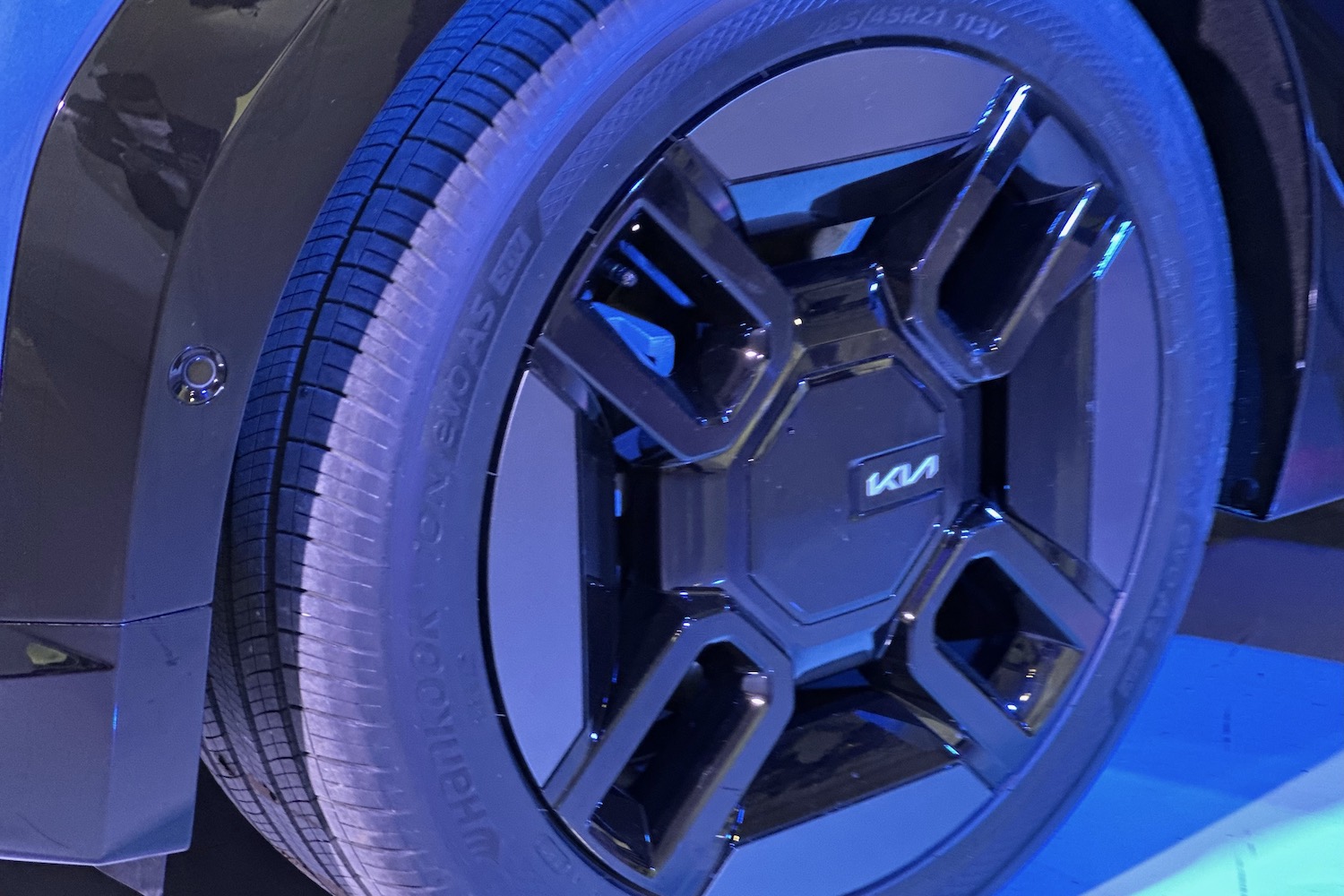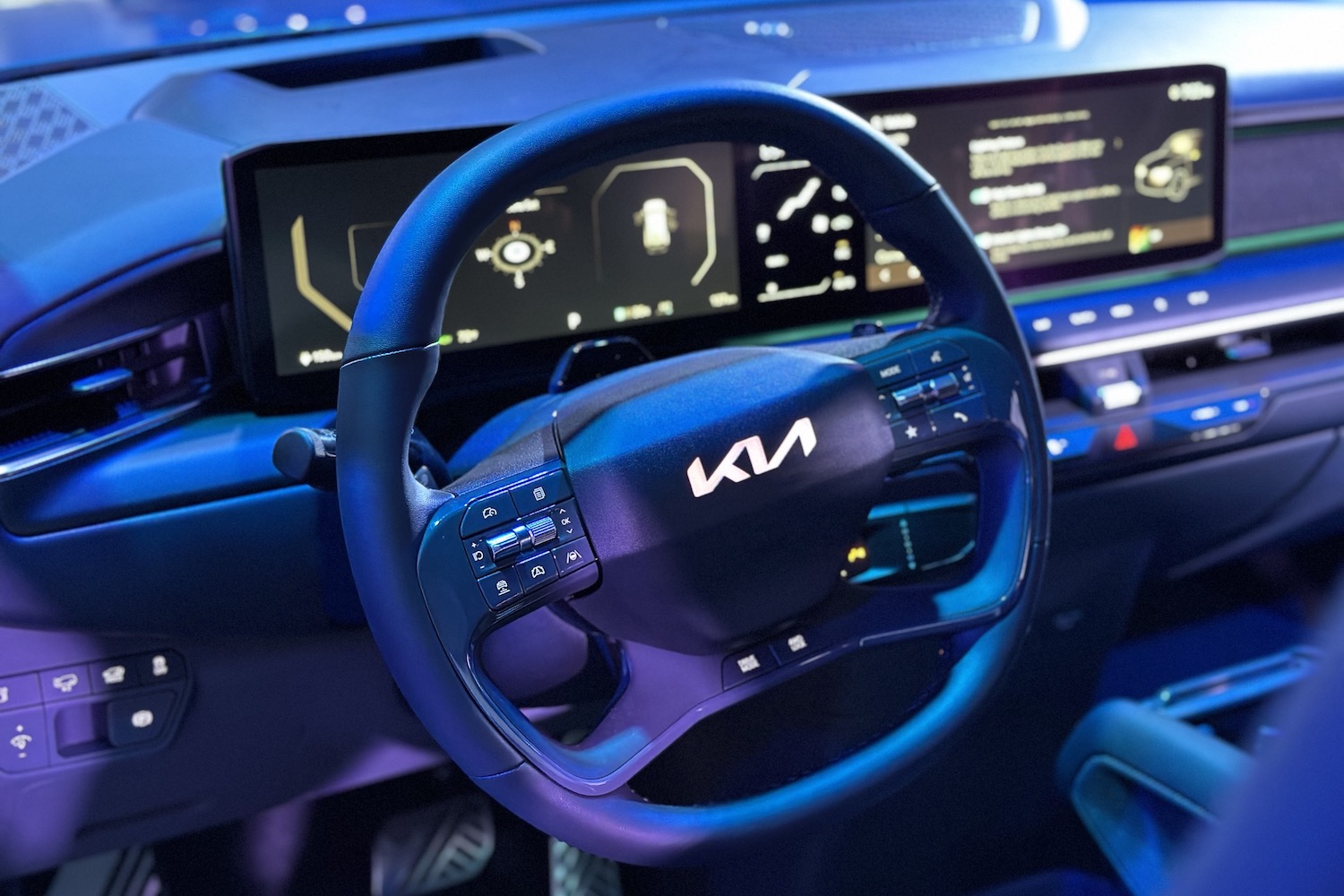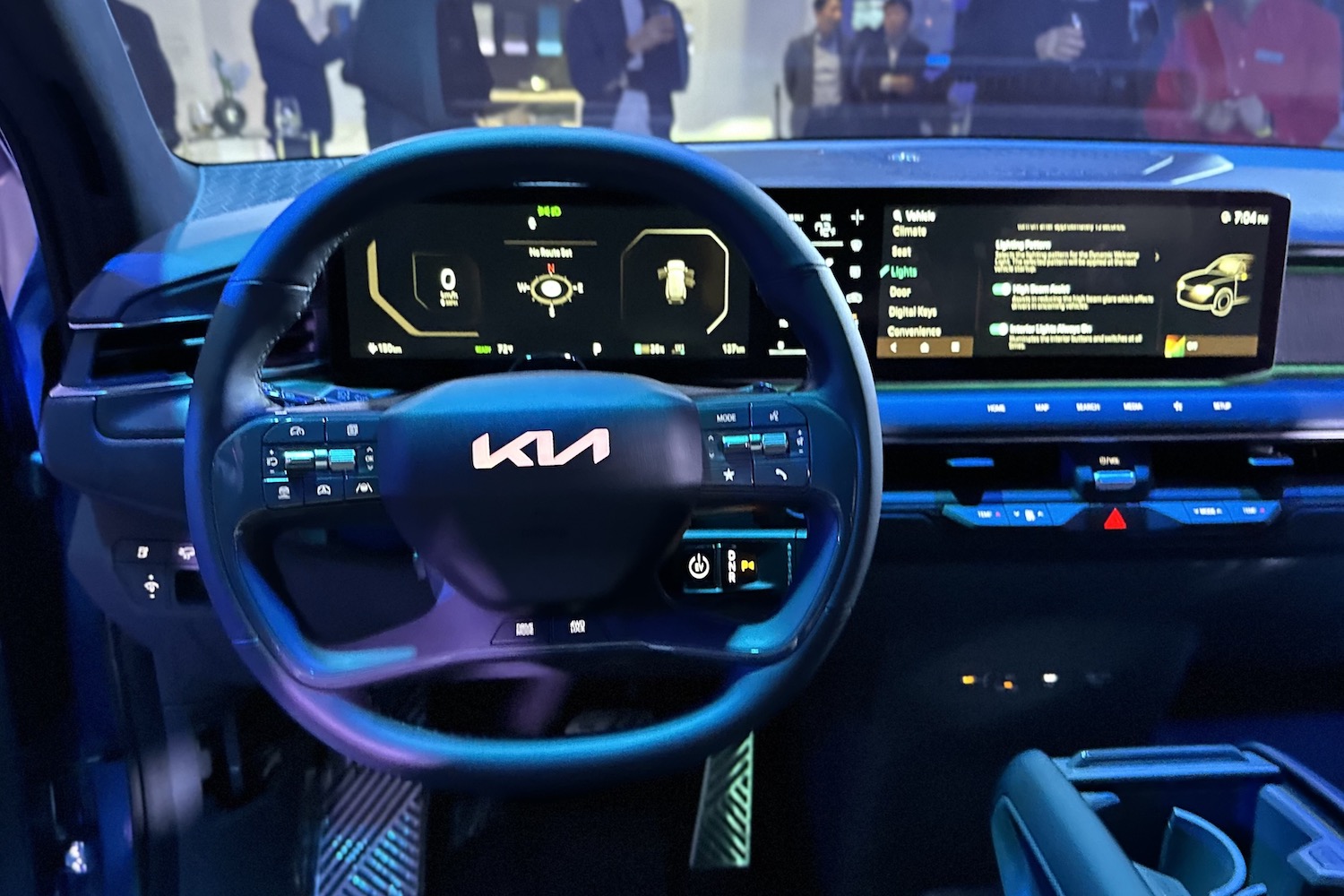Kia’s just getting warmed up with its lineup of EVs. In addition to coming out with more traditional electric vehicles like the Niro EV, the automaker is also working on building its “EV” lineup of vehicles that utilize its E-GMP platform like the EV6. After a lot of speculation and teasing, Kia is finally ready to unveil the three-row 2024 EV9 in its entirety.
There’s no mistaking the EV9 for anything beyond being a midsize SUV. Heck, the electric SUV shares similar lines to the current Kia Telluride that’s on sale, which, we have to say, is an incredibly handsome vehicle. Well, Kia continues to drop bangers, because the EV9 is a looker. And that’s saying something for an SUV.
Compared to the Telluride, the EV9 is 0.3 inches longer, but because of the way the electric powertrain is packaged, the wheelbase is 7.8 inches longer. The result is more interior space. The EV9 will be the first all-electric vehicle from Kia to be offered with a third row and seating for up to seven. Having sat in the EV9 at the New York Auto Show, we can say that the third row is still a squeeze, but the first two are plenty spacious for adults.
Sticking with the EV9’s seats, Kia will offer the SUV with multiple second-row configurations. One is a basic set of captain’s chairs. The second is a set of captain’s chairs that can fully recline for maximum comfort. Consumers can also spec the EV9 with second-row seats that swivel up to 180 degrees to face the third row. With a limited amount of space in the third row, we wonder how useful the swiveling third row will be in the real world.
At the time of launch, the EV9 will be offered with two powertrains in the U.S. The base powertrain consists of an electric motor on the rear wheels that’s rated at 215 horsepower. A 76.1-kWh battery pack is also included, while a larger 99.8-kWh battery pack will be available. Pair the larger battery pack with the single electric motor on the rear wheels and Kia claims that it’s targeting up to 300 miles of range. A dual-motor EV9 with all-wheel drive will also be offered with the 99.8-kWh battery pack. That model will make up to 379 horsepower and 516 pound-feet of torque. Range for that figure isn’t available yet.
Thanks to the E-GMP platform, the EV9 has an 800-volt architecture that allows for fast-charging capability. When plugged into a fast-charger, the EV9 can go from 10% to 80% charged in under 25 minutes. Like a few of other Kia’s products, the EV9 will offer Vehicle-to-Load charging that enables it to act as an onboard power generator.
Kia hasn’t provided measurements for the EV9’s screens, but they’re massive displays. The digital instrument cluster and the infotainment screen are connected in a single piece with stunning graphics. Kia claims the electric SUV has the automaker’s next-gen operating system and will be the first vehicle from Kia to have vehicle system over-the-air software updates. A digital key system will also be available, allowing owners to use their Apple and Samsung products to lock, start, and unlock the EV.
The global EV9 GT-Line will be available with a Level 3 semi-autonomous system in the form of Kia’s Highway Driving Pilot system. Kia’s press release for the U.S. doesn’t say anything about a Level 3 system, but has confirmed that the EV9 will be offered with Advanced Highway Driving Assist, Lane Following Assist, and Highway Driving Assist 2. These features will allow the SUV to stay in the middle of the lane on the highway, follow a lead vehicle, and assist in lane changes.
Beyond the high-tech and upscale interior design, Kia’s designers have made sure to be as environmentally conscious on the inside. The EV9 features recycled and sustainable materials that are found throughout the entire lineup. Some of the materials used are extreme, like sugar cane extract, corn, castor oil, and fishing nets, but you can’t really tell as the cabin feels plenty nice.
After touching and seeing the 2024 Kia EV9 in the flesh, we’re impressed. If Kia manages to price the SUV appropriately, we’re certain it will be a massive success. The EV9 is expected to go on sale before the end of the year, and the SUV will be assembled at the brand’s West Point, GA, facility starting in 2024.
